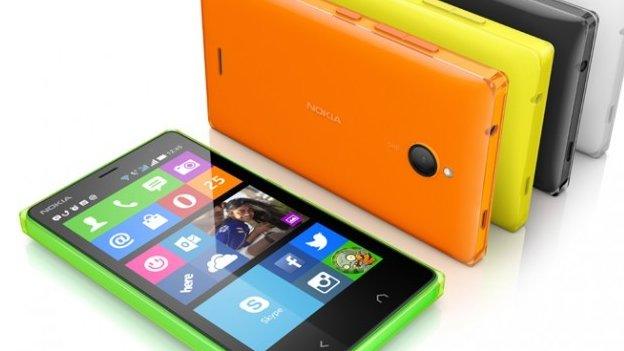Microsoft stays committed to ultra-cheap phones
- Published
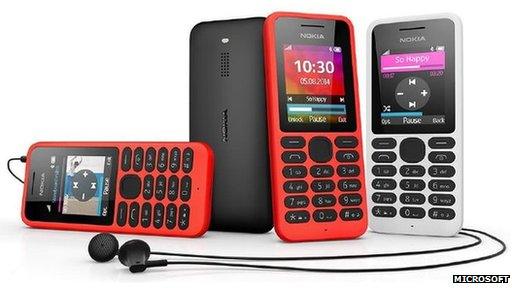
The Nokia 130 can play videos and MP3 music files on its 1.8in (4.6cm) screen
Microsoft has announced a low cost mobile phone that lacks a data connection, meaning it cannot offer any of the firm's internet services.
The Nokia 130 is priced at 19 euros ($25; £15).
The launch comes a month after a leaked memo revealed, external that Microsoft planned to kill off several of its low-cost phone families to "focus on" its more expensive Windows Phone range.
But the firm said that it was still committed to its most basic range.
"This is a massive market segment, and there are not a lot of players in this segment for the reason that scale is really important," Jo Harlow, head of Microsoft's phones business, told the BBC.
"We have the distribution and supply chain scale to compete effectively in this market.
"This is a space where smartphones today don't reach, so there is still very strong benefits to our business."
Ms Harlow said that Microsoft was targeting the device at low wage earners in emerging markets, but added that despite its low price, the firm should profit on the handset after deducting manufacturing and marketing costs.
They will be sold with other budget handsets running the Series 30+ operating system, which Microsoft acquired as part of its takeover of Nokia's handset division in April.
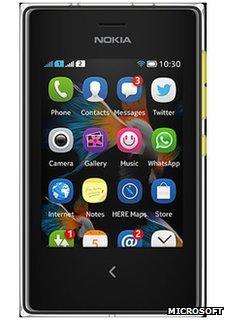
Microsoft plans to phase out the Asha range of handsets
Ms Harlow confirmed, however, that the firm had called a halt to releasing further Asha and Android-powered Nokia X handsets - platforms that have the added ability of allowing users to install apps from Microsoft and third-party developers.
The phased-out ranges had previously been marketed as stepping stones to Nokia's more expensive and more powerful Lumia-branded Windows Phone handsets.
But one industry watcher suggested that they had been squeezed out by the competition.
"Microsoft will have done a business case for the new phone, and it knows that it is one of the top players in terms of volume in the 'feature phone' space," said Ben Wood, chief of research at the consultancy CCS Insight.
"The problem with Asha and X phone was that they were cannibalised completely by low-cost Android.
"Microsoft may only make tiny amounts of money per Nokia 130 device, but you have to look at the volume, which is millions and millions of units.
"They won't be losing money on them, that's the point. On the Asha and X products there was no clear business model."
Microsoft's marketing materials for the new handset, external note that a recent study indicated more than 300 million sub-$35 (£21) contract-free handsets were sold a year.
Samsung, India's Micromax and the Chinese firm TCL offer rival "ultra-affordable" phones of their own.
The Nokia 130's lack of data connectivity means that it will not be able to take part in Microsoft's wider "cloud first" strategy, external.
However, the 1.8in (4.6cm)-screened phone will be one of the cheapest handheld devices capable of playing back video thanks to its ability to read files saved to a Micro SD card.
The device will be sold in China, Egypt, India, Indonesia, Kenya, Nigeria, Pakistan, the Philippines and Vietnam, but there are no plans to release it in the UK.
- Published17 July 2014
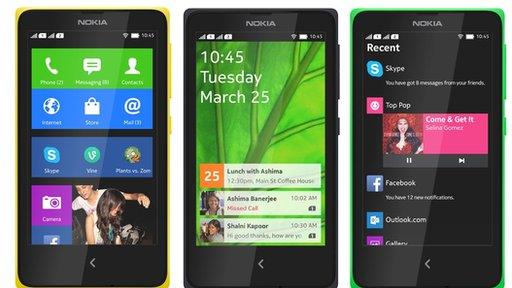
- Published17 July 2014
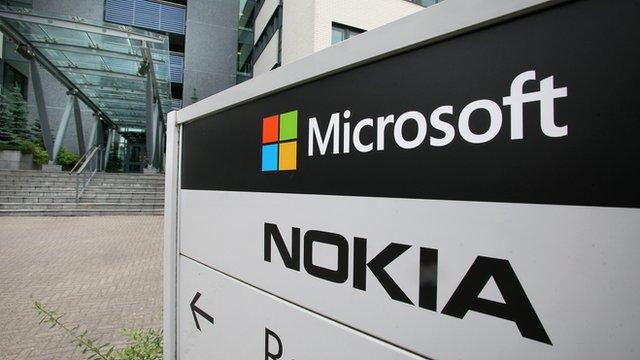
- Published24 June 2014
